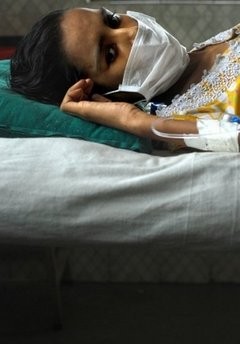
SYDNEY (AFP) – Australian scientists said Wednesday they had discovered a drug which could cure tuberculosis at its non-infectious stage and could be the first major breakthrough on the disease in 50 years.
Bacteriologist Nick West said researchers at Sydney's Centenary Institute had developed a drug which could essentially combat the disease before it takes hold, potentially saving millions of lives around the world.
"We have investigated a protein that is essential for TB to survive and we have had some success in developing a drug that will inhibit this protein," said West.
"Our goal over the coming months is to find out the full extent of this drug's potential."
West said it would be the first time in history that dormant or asymptomatic, non-infectious TB would be able to be treated, potentially stemming a deadly tide of infection which claimed two million lives every year.
"Unfortunately, the antibiotics we use to fight TB aren't effective against latent TB and can only be used when the disease becomes active," he explained.
"This is a major problem as one out of 10 people who have latent TB will develop the active disease, becoming sick and contagious."
"If we can figure out a way to treat TB when it's in a latent stage, then we could save millions of lives throughout the world," West added.
If successful the drug would be the the first new treatment for TB since 1962, according to the institute which is affiliated with the University of Sydney.
One third of the world's population, or two billion people, are estimated to be infected with TB, with the disease growing fastest in South East Asia.
Lethal multidrug-resistant strains of the disease were becoming a serious threat to global health, infecting almost half a million people in 2008, of whom one-third died, the World Health Organisation warned last week.
Almost half the drug resistant cases were estimated to have occurred in India and China, the WHO said, with an extensively drug-resistant form, found in 58 countries, "virtually untreatable".
























